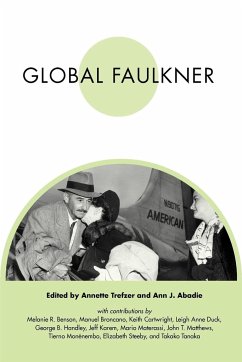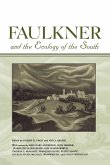A probing of the many ways Faulkner interacted with the world's economies With contributions from Melanie R. Benson, Manuel Broncano, Keith Cartwright, Leigh Anne Duck, George B. Handley, Jeff Karem, Mario Materassi, John T. Matthews, Tierno Monénembo, Elizabeth Steeby, and Takako Tanaka Today, debates about globalization raise both hopes and fears. But what about during William Faulkner's time? Was he aware of worldwide cultural, historical, and economic developments? Just how interested was Faulkner in the global scheme of things? The contributors to Global Faulkner suggest that a global context is helpful for recognizing the broader international meanings of Faulkner's celebrated regional landscape. Several scholars address how the flow of capital from the time of slavery through the Cold War period in his fiction links Faulkner's South with the larger world. Other authors explore the literary similarities that connect Faulkner's South to Latin America, Africa, Spain, Japan, and the Caribbean. In essays by scholars from around the world, Faulkner emerges in trans-Atlantic and trans-Pacific contexts, in a pan-Caribbean world, and in the space of the Middle Passage and the African Atlantic. The Nobel laureate's fiction is linked to that of such writers as Gabriel García Márquez, Wole Soyinka, Miguel de Cervantes, and Kenji Nakagami.
Hinweis: Dieser Artikel kann nur an eine deutsche Lieferadresse ausgeliefert werden.
Hinweis: Dieser Artikel kann nur an eine deutsche Lieferadresse ausgeliefert werden.








